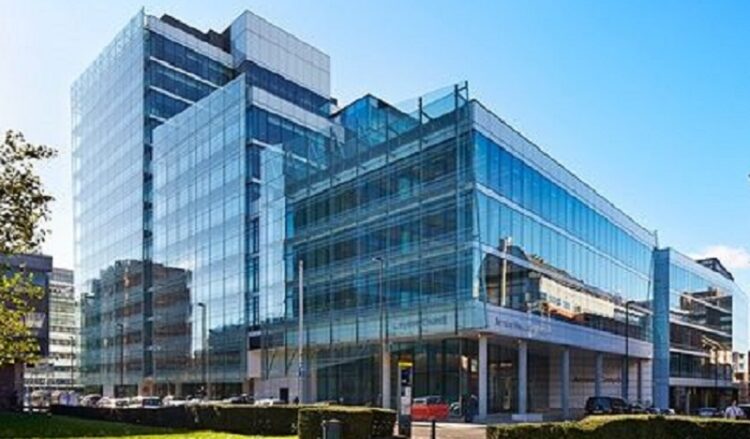By Gavin Mackintosh-
Croydon Council has a £229m debt to be paid within the next year, worsening its already disastrous state of affair, which makes it one of the most avoided boroughs for those seeking accommodation.
The ailing council has been struggling with cash for the past few years, despite hiring a number of expensive personnel on rich salaries based on their big names.
Big names in Croydon council have in the past failed to deliver on substance, but often specialized in squeezing out the limited funds available, and turning a blind eye to the endless problems facing the council.
A year ago, Katherine Kerswell- the council chief exec, commissioned professionals to examine to findings of the auditors, including the possibility that the deals between the council and house-builders Brick by Brick were unlawful.
Suspicion of unlawful use of public money has been sounded in the council and extended to journalists who continue to be shocked at the
Central to the auditors’ attention is how a £30million budget, two-year project ended up costing at least £70million, and taking more than three years, yet still incomplete and unfinished.
All of the main decisions were made when Newman was council leader, Simon Hall was the cabinet member for finance and Alison Butler was the council deputy leader and cabinet member for housing, with self-acclaimed “regeneration practitioner” Jo Negrini as the council’s “executive director Place” and, from 2016, its CEO.
In September 2014, the council cabinet approved Negrini’s brainchild of a “Cultural Quarter” (at one point under Negrini, Croydon had more “quarters” than a Manhattan phone box), to include the regeneration of Fairfield Halls..
As the directors’ report states, “This facility consolidates numerous historic loan agreements and informal lines of funding. The facility agreement provides the company with the security of funding, based on its cashflow projections, to continue to build out and sell its developments in an orderly manner to maximize potential returns to the lender.”
According to the report, as at March 31 this year , Croydon Council was working on 14 construction sites, 12 of which are supposed to be completed by the end of March 2022. Brick by Brick sold £20million-worth of flats in 2020-2021, while also writing off “approximately” £20million “of costs incurred that relate to projects that are no longer going to be acquired for development”.
In 2020-2021, after being in existence for nearly six years, Brick by Brick completed 187 homes across seven sites, and is on target to complete a further 291 homes across 12 sites in the year to March 31, 2022.” Most of its projects are at least one year behind schedule, some as much as three years late.
Under “current assets”, the accounts list “inventories and work in progress” worth £145.9million. This, though, is £51million less than was on the books in 2019-2020, the year before.
The accounts show income from “Property sales and refurbishment” to March 2021 of £92,788,823, up from £23,031,968 in 2020.
The accounts again disguise the salaries and pension contributions paid to Brick by Brick’s top earners, thought to be Lacey and his deputy CEO, Chloe Phelps, both of whom announced their intention to leave the company.
Yet while 500 staff at the council were receiving their P45s since 2020, Lacey’s empire-building at Brick by Brick continued, with the company’s staff numbers going up from 27 in 2019, to 38 in 2020, to 43 by March this year.
Staff costs – salaries, NI and pensions – rose from £2.2million (for 38 staff) in 2020 to £2.6million by March 2021.
The annual report also suggests that the costs of the bungled and over-budget Fairfield Halls fiasco has now reached £72million, as Brick by Brick awaits payments “arising from the refurbishment… and associated works”.
The directors – Ian O’Donnell and Duncan Whitfield, appointed 12 months ago when Lacey, the company’s CEO, was kicked off the board – say that the £25.26million net loss for the year, is “in large part due to the decision by the shareholder…” (that is, the council) “…to cease all new construction activities.”
The company under Lacey, despite being handed dozens of council-owned sites at ridiculously cheap rates has failed to make a penny profit since it was formed in 2015.
When O’Donnell first delved into Brick by Brick’s paperwork in early 2020, he discovered that Lacey had been running the operation without proper records or a finance director for around two years. Today’s report states, “The board monitor the profit and loss by means of detailed monthly management accounts and forecasts.” Which is nice.
Brick by Brick’s failed to repay a single penny of the original £200million-worth of loans from the council that led to Croydon to go bust.
In July 2018, a council meeting was told, by the then cabinet member for finance, Simon Hall, that Brick by Brick’s “slippage” amounted to £63million, money that should have been in the council’s coffers, but Brick by Brick failure to build houses on time and to budget meant it lost out on £63m that should have been in its coffers.




